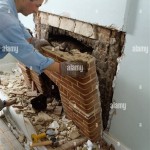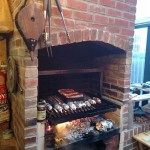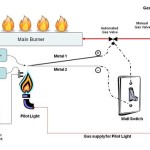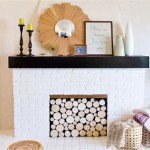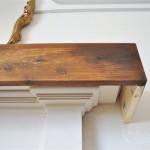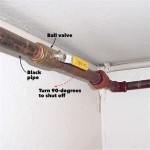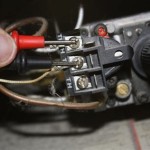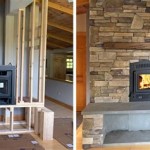Outdoor Fireplace Insert: Wood Burning - A Comprehensive Guide
An outdoor fireplace insert provides a practical and aesthetically pleasing method for enhancing outdoor living spaces. Specifically, a wood-burning insert offers the authentic ambiance of a traditional fire, combined with improved efficiency and control. This article provides comprehensive information regarding outdoor fireplace inserts that burn wood, including their benefits, considerations for selection, installation guidelines, and maintenance practices.
Benefits of Wood-Burning Outdoor Fireplace Inserts
Wood-burning outdoor fireplace inserts offer several advantages over open-air fire pits or custom-built fireplaces. These advantages stem from their controlled combustion and design features, making them a desirable option for many homeowners.
The primary benefit of an insert is improved heat output. Unlike open fires, inserts are designed to radiate heat more effectively. The enclosed firebox concentrates the heat and directs it outward, warming a larger area with less wood. This is particularly useful in cooler climates or during evening gatherings.
Furthermore, inserts provide enhanced safety. The enclosed design prevents embers from escaping and potentially causing unintended fires. A mesh screen or glass door further contains sparks and ash, minimizing the risk to nearby structures, furniture, and vegetation. This feature is crucial for homeowners concerned about fire safety, especially in areas prone to dry conditions or with strict fire regulations.
Inserts offer greater control over the fire compared to traditional fire pits. The inclusion of a damper allows adjustment of the airflow to control the intensity of the flame and the rate at which the wood burns. This control is beneficial for maintaining a consistent temperature and prolonging the burn time, optimizing fuel efficiency and minimizing the need for frequent re-fueling.
Finally, a wood-burning insert can significantly increase the aesthetic appeal of an outdoor space. The insert provides a clean, finished look that complements various architectural styles. Many models are available in different designs, materials, and finishes, allowing homeowners to choose an insert that matches their existing outdoor décor and personal preferences. The visual appeal of a controlled, contained flame also enhances the overall ambiance of the outdoor area, creating a more inviting and relaxing environment.
Factors to Consider When Selecting a Wood-Burning Outdoor Fireplace Insert
Choosing the right wood-burning outdoor fireplace insert requires careful consideration of several factors. These factors include the size and design of the existing fireplace opening, the desired heat output, the materials used in construction, and compliance with local regulations.
The dimensions of the existing fireplace opening are critical. The insert must fit snugly within the opening to ensure proper insulation and heat retention. Accurate measurements of the width, height, and depth of the firebox are essential before selecting an insert. Manufacturers typically provide detailed specifications for their products, allowing homeowners to verify compatibility with their existing fireplace.
The desired heat output is another crucial consideration. The size and design of the insert, as well as the type of wood used, will affect the amount of heat generated. Homeowners should consider the size of their outdoor space and the typical weather conditions in their area when determining the appropriate heat output. Inserts are often rated in BTUs (British Thermal Units), which provide a measure of their heating capacity.
The materials used in the construction of the insert influence its durability and appearance. Common materials include cast iron, steel, and stainless steel. Cast iron is known for its excellent heat retention, while steel offers a balance of durability and affordability. Stainless steel is highly resistant to corrosion and is ideal for coastal environments. The choice of material depends on the homeowner's budget, aesthetic preferences, and the environmental conditions of the outdoor space.
Compliance with local building codes and regulations is mandatory. Many jurisdictions have specific requirements for outdoor fireplaces, including restrictions on fuel type, emissions standards, and setback distances from structures. Before purchasing an insert, homeowners should consult with their local building department to ensure compliance with all applicable regulations. Failure to comply may result in fines or the requirement to remove the insert.
Installation Guidelines for Wood-Burning Outdoor Fireplace Inserts
Proper installation of a wood-burning outdoor fireplace insert is essential for ensuring safe and efficient operation. While some homeowners may be comfortable with a do-it-yourself approach, professional installation is generally recommended, especially if the installation involves modifying the existing fireplace or connecting to a chimney system.
Before beginning the installation process, it is crucial to inspect the existing fireplace structure. The fireplace should be structurally sound and free from cracks or damage. Any necessary repairs should be completed before installing the insert. The chimney should also be inspected and cleaned to ensure proper venting of smoke and gases. A professional chimney sweep can perform this inspection and cleaning.
The insert should be properly positioned within the fireplace opening, ensuring a tight seal to prevent air leaks. Insulating materials, such as ceramic fiber blankets or mineral wool, can be used to fill any gaps between the insert and the firebox walls. This insulation improves heat retention and prevents heat from escaping into the surrounding structure.
Connecting the insert to the chimney flue is a critical step. A stainless steel chimney liner is often recommended to ensure proper venting and prevent corrosion of the existing chimney. The liner should be properly sized for the insert and installed according to the manufacturer's instructions. Proper connections between the insert and the liner are essential to prevent the leakage of harmful gases, such as carbon monoxide.
After installation, the insert should be thoroughly tested to ensure proper operation. This involves lighting a small fire and monitoring the draft and smoke output. Any issues, such as smoke backdraft or excessive creosote buildup, should be addressed immediately. A professional installer can perform this testing and make any necessary adjustments to ensure safe and efficient operation.
Maintenance Practices for Wood-Burning Outdoor Fireplace Inserts
Regular maintenance is necessary to ensure the long-term performance and safety of a wood-burning outdoor fireplace insert. This maintenance includes cleaning the firebox, inspecting the chimney, and maintaining the exterior surfaces.
Cleaning the firebox is essential for removing ash and creosote buildup. Ash can accumulate quickly and reduce the efficiency of the insert. Creosote is a tar-like substance that can build up in the chimney and increase the risk of chimney fires. The firebox should be cleaned regularly, typically after each use or after burning several loads of wood. A scraper or brush can be used to remove ash and creosote from the firebox walls and floor.
Inspecting the chimney is also crucial for preventing chimney fires and ensuring proper venting. The chimney should be inspected at least once a year, preferably by a professional chimney sweep. The inspection should include checking for creosote buildup, cracks, and other damage. If significant creosote buildup is detected, the chimney should be cleaned to remove the buildup and reduce the risk of fire.
Maintaining the exterior surfaces of the insert helps to preserve its appearance and prevent corrosion. The exterior surfaces should be cleaned regularly with a damp cloth to remove dust and dirt. Any rust or corrosion should be addressed promptly to prevent further damage. Some inserts may require periodic painting or sealing to protect the finish.
Additionally, the gasket around the door of the insert should be inspected regularly and replaced if necessary. A worn or damaged gasket can allow air leaks, which can reduce the efficiency of the insert and increase the risk of smoke backdraft. Replacing the gasket is a relatively simple and inexpensive task that can significantly improve the performance of the insert.
Wood Selection and Burning Practices
The type of wood used in a wood-burning outdoor fireplace insert significantly impacts its efficiency, heat output, and the amount of smoke produced. Using seasoned hardwood is essential for optimal performance and minimizing environmental impact.
Hardwoods, such as oak, maple, and ash, are denser than softwoods and contain more energy per unit volume. This means that hardwoods burn longer and produce more heat than softwoods. Seasoning refers to the process of drying wood to reduce its moisture content. Properly seasoned wood burns more efficiently, produces less smoke, and reduces creosote buildup in the chimney.
Green wood, which has a high moisture content, burns inefficiently and produces excessive smoke. The moisture in the wood absorbs heat during combustion, reducing the overall heat output. The smoke produced by burning green wood contains unburned gases and particles, which contribute to air pollution and increase creosote buildup. Seasoned wood should have a moisture content of less than 20 percent.
To season wood properly, it should be split and stacked in a dry, well-ventilated area for at least six months, or ideally a year. Covering the stack with a tarp can help to protect the wood from rain and snow, but it is important to leave the sides open to allow for air circulation. Using a wood moisture meter can help to determine when the wood is properly seasoned.
Proper burning practices also contribute to efficient and clean combustion. Starting the fire with kindling and gradually adding larger pieces of wood helps to establish a strong, consistent flame. Avoid overloading the firebox, as this can restrict airflow and lead to incomplete combustion. Adjusting the damper to control the airflow can help to maintain a hot, clean-burning fire.

Superior 50 Inch Outdoor Wood Burning Fireplace Wre4550

50 Large Outdoor Real Masonry Wood Burning Fireplace Fine S Gas

42 Castlewood Outdoor Wood Burning Fireplace Fine S Gas

Outdoor Wood Fireplaces Jetmaster

Duluth Forge Vent Free Stainless Outdoor Gas Fireplace Insert With Copper Fire Glass Media 24 000 Btu 170371 The Home Depot

Outdoor Wood Burning Fireplace Tuscan 42 Stainless Steel White Stacked Brick Interior Ihp

Outdoor Lifestyles Cottagewood 36 Inch Wood Fireplace

Outdoor Lifestyles Gas Burning Fireplace Traditional Refractory Vesper 42

Cottagewood 42 Outdoor Wood Burning Fireplace With Gray Traditional R Hearth Mart

Pavestone 40 In X 36 60 Outdoor Fireplace Insert Kit 417 Rjt Fpi The Home Depot
Related Posts

